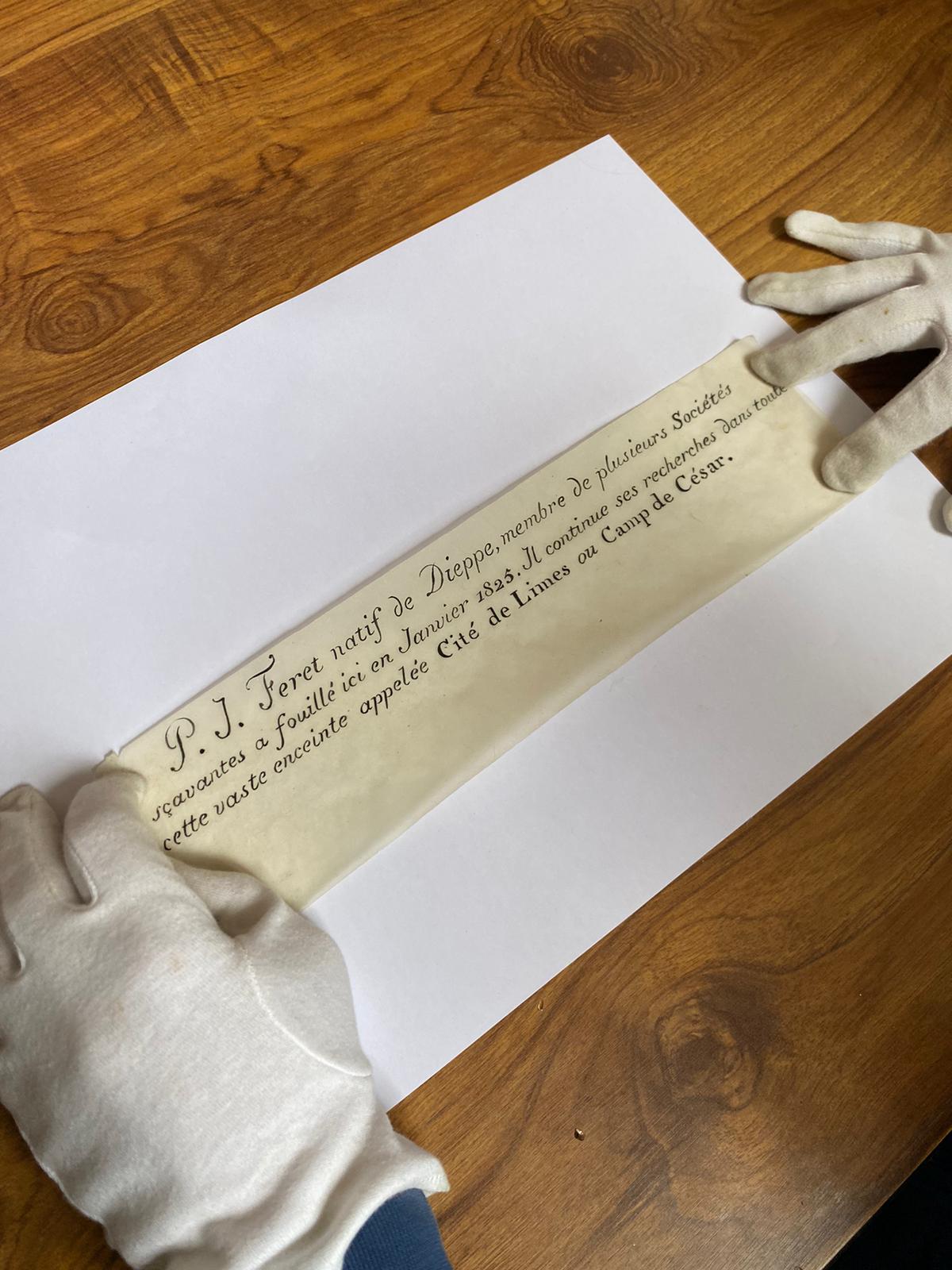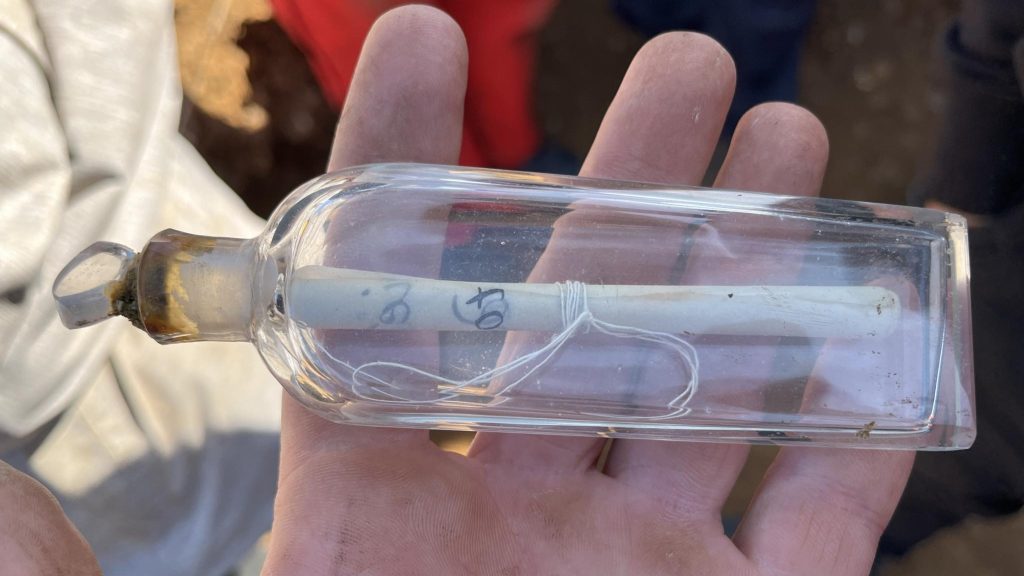A group of students on an emergency dig stumbled upon a 200-year-old message in a bottle.
Others are reading now
On the windswept cliffs near Dieppe, northern France, a team of archaeology students stumbled upon a message from the past — literally.
While excavating the remains of a 2,000-year-old Gaulish village, they unearthed a small glass vial hidden inside an earthenware pot.
But the real surprise came when they carefully opened the bottle: inside was a handwritten note, penned 200 years ago by an archaeologist working on the same site.
The message, dated January 1825, was written by P.J. Féret, a Dieppe native and member of various intellectual societies.
Also read
It was a simple but striking announcement: Féret had been digging in the very same spot, in what was then known as Caesar’s Camp.
“He continues his investigations in this vast area known as the Cité de Limes,” the note read, according to the Smithsonian.

“It was an absolutely magic moment,” said Guillaume Blondel, the lead archaeologist overseeing the dig. “We knew there had been excavations here in the past, but to find this message from 200 years ago… it was like hearing a voice from another time.”
The dig was initiated due to the fast-eroding cliffs that threaten to swallow this ancient site, but the team never expected to find a message in a bottle. Archaeological finds are rarely accompanied by such personal, deliberate communication from past diggers.
“Sometimes you hear about time capsules left by builders when they complete houses,” Blondel mused. “But in archaeology? This is almost unheard of.”
The discovery was made at the Cité de Limes, an ancient Gaulish oppidum, or fortified village, that has been slowly slipping into the sea due to erosion. Already, parts of the village have disappeared into the ocean. Yet, in just one week, the dig has yielded several artefacts from the Gaulish period, including pottery fragments dating back 2,000 years.
Blondel and his team now hope to unravel more secrets of the Gaulish village while time allows.
“What we don’t know is what went on inside the village. Was it a place of importance?” Blondel pondered.


